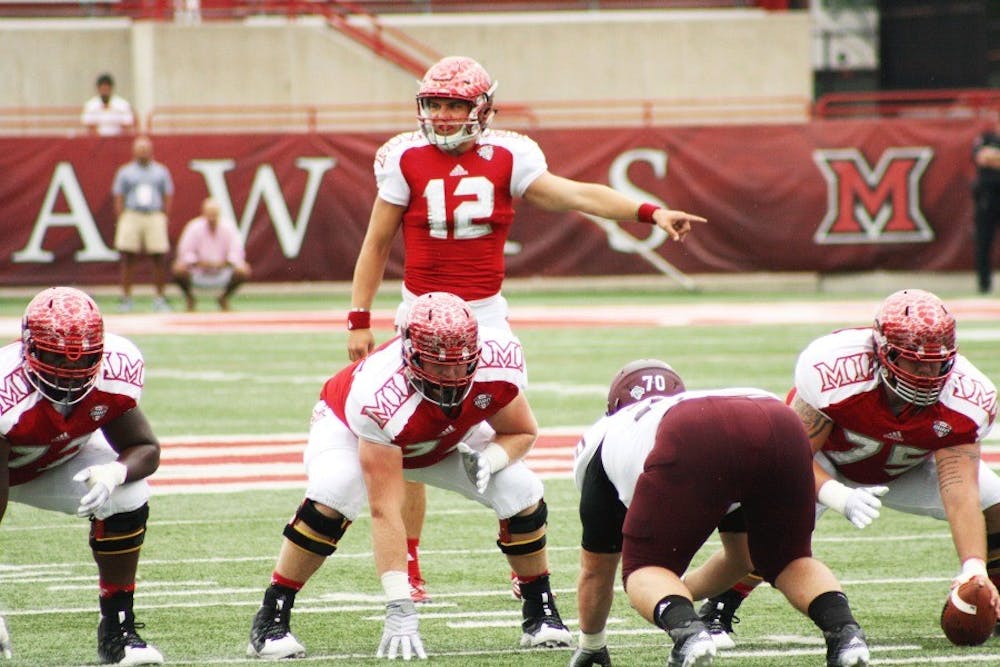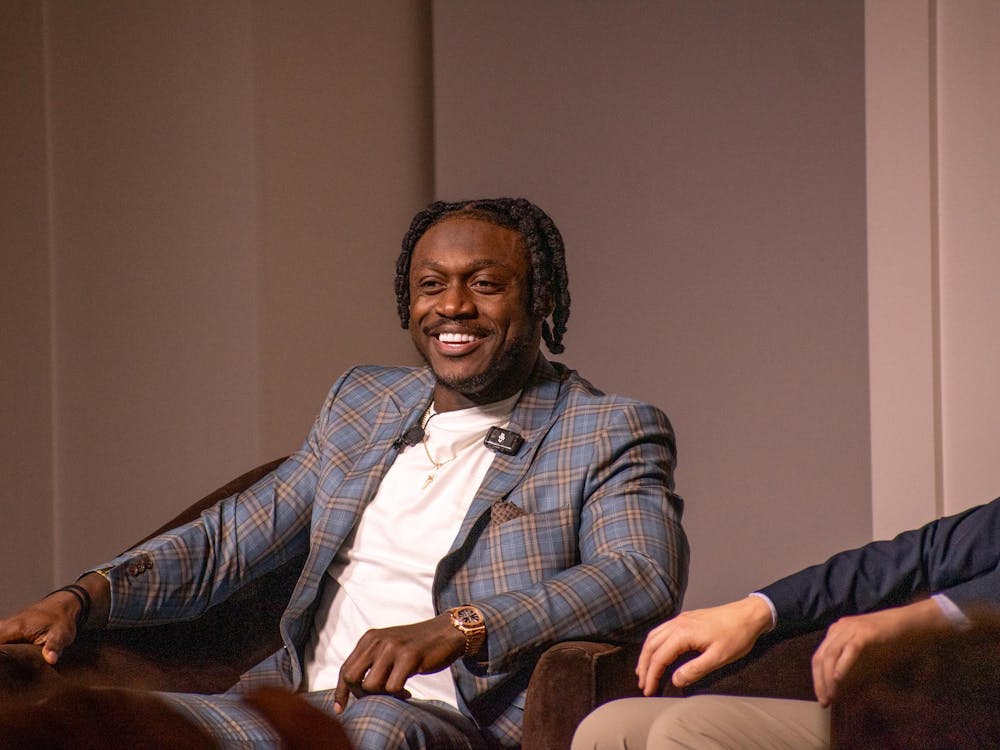Going Long with Geisler
By Andrew Geisler, Columnist
Judging from the media coverage surrounding both the NFL and college football, you'd be hard pressed to not expect way too much, or too little, of the quarterback on every roster. This is because a quarterback is considered elite, a game manager or needing to be replaced.
The need to be simplistic in such matters on television and on the radio is understandable, but it tends to give fans, and less-than-expert media members, an inflated sense of the importance of the team's quarterback to the whole program. Obviously, this is not to say solid quarterback play is not essential to success, but to listen to the talking heads you'd think he has to be a member the organization's senior leadership team.
Quarterback leadership can be important, but it's not the only path to football success. Tom Brady, Peyton Manning, Aaron Rodgers, Andrew Luck and Drew Brees are probably the best five quarterbacks in the NFL. All but Luck has at least one Super Bowl, and he will get one before too long. All are also the most dominant personality on their team.
But, the rise of this type of player - with the ridiculous stats and Super Bowl championships that come with it - give fans and the media a skewed vision of the best way to build a roster.
Consider the stories out earlier this year that said Seahawks quarterback Russell Wilson's lack of leadership in the locker room was a big reason for their early season struggles. Now, the Seahawks are 7-4, and these stories have lost traction.
Everyone knows Wilson is far from being the key to the Seahawks' roster. It's really the attacking defenders Pete Carroll and John Schneider have put together to form one of the most aggressive and effective defenses in the league. When the defense wasn't producing, the team wasn't. Wilson playing well is helpful, but that's not about his leadership or command of the locker room. His success stems from the schematic challenges he presents for an opposing defense. The key to the Seahawks' success is the winning culture coming from Carroll. His "Win Forever" philosophy encourages players to be themselves and have a fun time playing the game with excellence.
What this example also points to is that, just like offensive systems, there's more than one way to skin the cat when building a roster. It is in vogue to act like the best way to play football today is the no huddle attack with an excellent quarterback. That's the Patriots model, but trying replicate Bill Belichick's roster-building success has proven difficult for his subordinates who have left town, and dominant defensive teams win the Super Bowl with frequency.
The question of leadership can be a tricky one, but it's safe to say the head coach, general manager and owner do much more to set an organizational culture than the quarterback. For the team to be successful, the quarterback should take cues from the top, but he is not the top. He's more like the Chief Justice of the Supreme Court, first among equals, with an emphasis on equals.
Football teams are made up of organizational silos. There's often a key leader in every position group, and if there's not, that group underperforms. At the same time, there has to be a commitment to teamwork. The veneration of the quarterback can actually hinder this development.
Still Don Shula's famous dictum that "Luck means a lot in football. Not having a good quarterback is bad luck," rings true today. A quarterback has to be consistent, he has to buy into the program, but we shouldn't force all of them to the head of the table.




